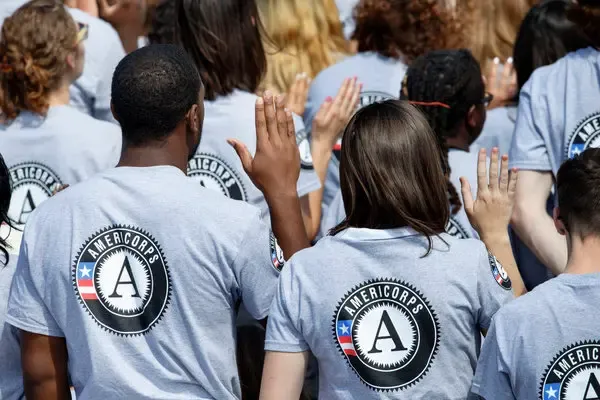Table of Contents
In the 2022-23 academic year, Stanford freshmen will be required to take a ‘COLLEGE’ class that aims to teach citizenship and foster civic values among undergraduates. I am skeptical that citizenship is something that can be taught in a classroom. Forcing professors to impart the importance of citizenship onto students violates the principles of exploration and non-indoctrination. Even if professors were able to convince students about the virtues of citizenship, over a third of Stanford students are from California, meaning the diversity of our nation will not be properly represented in student discussion within citizenship classes.
As an alternative to teaching citizenship, I propose the implementation of a national service requirement for all American citizens once they turn eighteen. A national service requirement is the best way to teach citizenship to young Americans because they will work with their community, for their community.
This ‘national service’ would not be a draft: service would not be limited to military service (although military service would be an option), and all 18-year-olds would be required to work. Students could fulfill the requirement in a variety of ways: working on infrastructure, assisting teachers and doctors in underfunded American schools and hospitals, and working on national parks. These programs could be modeled on AmeriCorps or Teach for America, two highly successful programs that promote public service for young adults.
A larger, united American community must be cultivated amidst the greatest political polarization seen in the United States since the Civil War. In national service programs, eighteen-year-olds from all states and demographics will be required to work together, put aside their differences, and learn to tolerate one another. The dark cloud of political polarization threatens the political cohesion of young people. Traditional civics curricula are not sufficient to unite a fracturing country, especially because the curricula themselves have become the subject of seemingly endless political debates in recent elections.
Those who are most in need of civic education are the least likely to seek it out as they have not internalized values of civic engagement. By making national service mandatory, all young people will reap the benefits. Young people in national service programs will largely be working on tangible issues rather than abstract debates, meaning that they will see their peers as peers, rather than as a caricatured enemy.
Cultivating an understanding that people of different groups and identity markers can work together will demonstrate the purpose of a diverse community such as the United States. Only then can any meaningful civic engagement begin. Research has found that Americans who have completed national service programs as young adults are more civically engaged than their peers who have not. This interest in national service—and serving the country at large—is especially pertinent given the national labor shortage, low voter turnout, and falling support for democracy.
As participants in a mandatory national service program progress in their careers and have children, they will develop a community oriented mindset that promotes civic engagement and democracy.
It is dangerous to put the blame for our failing democracy onto politicians alone. Without a meaningful civic education system that brings Americans of all backgrounds together and forces them to collaborate and truly understand differences, our country will only continue to delve deeper into polarization. Fewer engaged Americans means a lack of accountability for our representatives.
Asking a young person to support a mandated national service program is to ask them to give away some of the most important time of their life. But, it is an ask that is necessary to achieve full political cohesion: robust studies have shown that both individuals and nations profit once national service programs are implemented.
Critics argue that national service programs are immoral because they coerce young people. However, the government necessitates we pay taxes and serve on juries as a way to improve the health of our democracy. A national service program would also be non-discriminatory: children of billionaires and senators will have to work alongside their less-fortunate peers. Time is the best way we can pay back all that our democracy has given us, and I hope that a national service program can help young people serve their country and normalize the ideals of civic participation.





